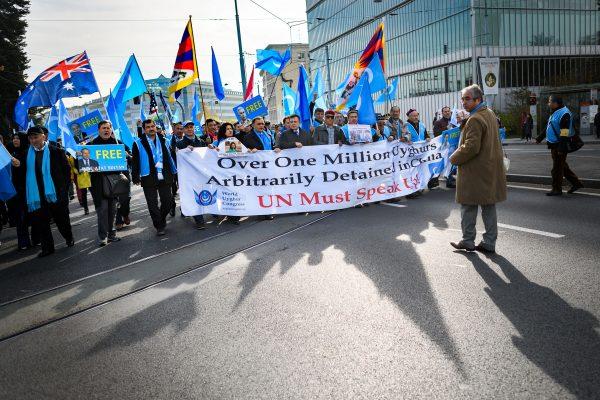ALMATY—Human rights activists are urging Uzbekistan to deny a Chinese extradition request for an ethnic Kazakh citizen of China who is now stuck in the Central Asian nation’s main air terminal.
Businessman Halemubieke Xiaheman, 41, from China’s Xinjiang Province, said in a video apparently recorded inside Tashkent airport building that he had been harassed by Chinese security officials to a point where his Russian and Kazakh clients were scared to work with him.
The video, as well as photos of Xiaheman’s documents, was distributed late on Feb. 7 by a group of activists based in Kazakhstan who said they were seeking to prevent Xiaheman’s extradition to China. Chinese and Uzbek authorities did not confirm that China had made an extradition request, or on what grounds.
Beijing has faced an outcry from activists, scholars, foreign governments and U.N. rights experts over what they say are mass detentions and strict surveillance of the large, mostly Muslim Uyghur population and other Muslim groups, including ethnic Kazakhs, who live in the Xinjiang region in northwest China.

Some Chinese Uyghurs have sought refuge in the countries of ex-Soviet Central Asia, with which they share ethnic and religious ties. However, Central Asian governments do not want to be seen as harboring Uyghur dissidents for fear of angering Beijing and losing out on badly-needed Chinese investment.
Steve Swerdlow, Central Asia researcher at Human Rights Watch, said returning Xiaheman to China would be “tantamount to shoving him down a dark hole.”
“Uzbekistan has a legal obligation under international law not to send a person to any country where he or she could face torture or the death penalty, even if that person is technically in a ’transit zone' of the airport,” Swerdlow said.
Uzbekistan’s Foreign Ministry said it was unaware of Xiaheman’s case. China’s Foreign Ministry had no immediate comment.
The Chinese regime has used the excuse that Xinjiang faces a serious threat from Islamist militants and separatists who plot attacks and stir up tensions with the ethnic Han Chinese majority to crack down on the local population in Xinjiang.
Uyghurs and other Muslims held in concentration camp-like facilities, known as “re-education” centers, are forbidden from using Islamic greetings, must learn Mandarin Chinese, and sing propaganda songs, according to a report by Human Rights Watch.





